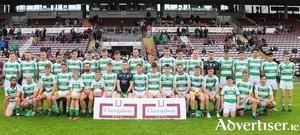Search Results for 'Corrib club'
7 results found.
Ninety years a rowing
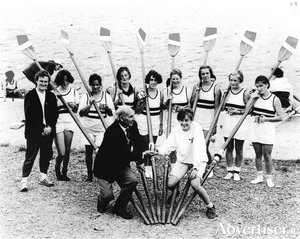
In 1934, a group of Jes boys gathered in Keogh’s shop, next to the school, to discuss the formation of a school rowing club. As there was no one on the staff to take charge, the school turned down the application but the boys were persistent and made another appeal. So, in October, 1934, the Jes Rowing Club was formed. They had to put together a crew, find a coach, get a boat and a base on the river so that they could get on the water.
Remembering Maurice Semple
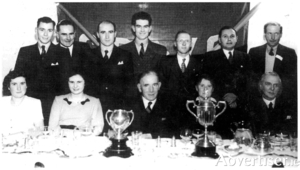
Maurice Semple was born in 1917, a member of a family that had continuous connection with the ‘Citie of the Tribes’ for over 400 years, one of three children of Frank Semple and Elizabeth ffrench. His father worked in a clerical capacity in the courthouse, his mother was one of the ffrenchs from Claregalway. Both his brother ffrench Semple and his sister Mary predeceased him.
The Corrib Rowing and Yachting Club
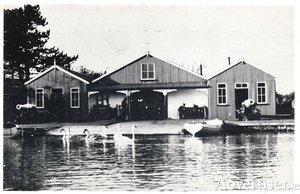
This club, originally established in 1864, must be one of the oldest in Galway, if not one of the oldest amateur sporting clubs in the country. Unfortunately, the minutes of the club meetings for 1864 and 1865 cannot be found, but we are fortunate that Maurice Semple had access to the minutes for most other years and published them in a book entitled A Century of Minutes, the Story of the Corrib Club, 1864 – 1966.
Galwegians RFC, one hundred years
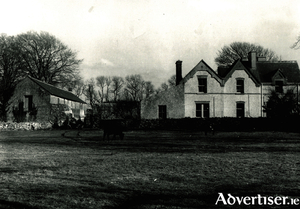
It is fairly certain that rugby football was being played in Galway before the formation of the IRFU, but the lack of surviving minutes of meetings or records makes it difficult to pinpoint the actual beginnings of some clubs. We know that in 1886 there were four clubs in existence, Queen’s College (now UG), The Grammar School, Galway Town, and Old Galwegians. These latter two clubs amalgamated in the 1909/10 season and called themselves Galway Town. They were a successful club. World War I and its aftermath ruled out competitive rugby but in the resumption, in 1921/22 they again won the senior cup and then, for some reason, decided to change the name again, this time to Galwegians RFC.
All Ireland intermediate win whets Oughterard's senior appetite
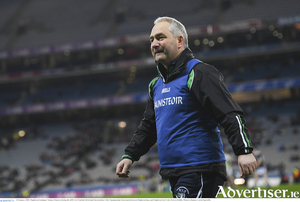
New boys Oughterard face the daunting challenge of squaring up to Corofin in this season's shortened senior football championship, but it is a task the Corrib club is relishing.
The Claddagh Basin
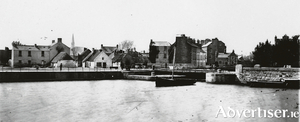
The actual cutting of what we now know as The Eglinton Canal began in March 1848. It provided much needed work during the Famine. It began at the Corrib Club and entered the sea near the Claddagh Church. The filling they dug out was used to fill terraces in UCG (which was also being built at the time) and to fill in the causeway behind Claddagh Quay. The Claddagh Basin and the Claddagh Quays were constructed to cater for the 300 boats which were operating out of the Claddagh at the time.
